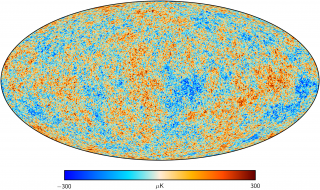Bibcode
Planck Collaboration; Ade, P. A. R.; Aghanim, N.; Armitage-Caplan, C.; Arnaud, M.; Ashdown, M.; Atrio-Barandela, F.; Aumont, J.; Baccigalupi, C.; Banday, A. J.; Barreiro, R. B.; Battaner, E.; Benabed, K.; Benoît, A.; Benoit-Lévy, A.; Bernard, J.-P.; Bersanelli, M.; Bielewicz, P.; Bobin, J.; Bock, J. J.; Bond, J. R.; Borrill, J.; Bouchet, F. R.; Boulanger, F.; Bowyer, J. W.; Bridges, M.; Bucher, M.; Burigana, C.; Cardoso, J.-F.; Catalano, A.; Chamballu, A.; Chary, R.-R.; Chen, X.; Chiang, H. C.; Chiang, L.-Y.; Christensen, P. R.; Church, S.; Clements, D. L.; Colombi, S.; Colombo, L. P. L.; Combet, C.; Couchot, F.; Coulais, A.; Crill, B. P.; Curto, A.; Cuttaia, F.; Danese, L.; Davies, R. D.; Davis, R. J.; de Bernardis, P.; de Rosa, A.; de Zotti, G.; Delabrouille, J.; Delouis, J.-M.; Désert, F.-X.; Dickinson, C.; Diego, J. M.; Dole, H.; Donzelli, S.; Doré, O.; Douspis, M.; Dunkley, J.; Dupac, X.; Efstathiou, G.; Enßlin, T. A.; Eriksen, H. K.; Finelli, F.; Forni, O.; Frailis, M.; Fraisse, A. A.; Franceschi, E.; Galeotta, S.; Ganga, K.; Giard, M.; Giardino, G.; Girard, D.; Giraud-Héraud, Y.; González-Nuevo, J.; Górski, K. M.; Gratton, S.; Gregorio, A.; Gruppuso, A.; Gudmundsson, J. E.; Hansen, F. K.; Hanson, D.; Harrison, D.; Helou, G.; Henrot-Versillé, S.; Herent, O.; Hernández-Monteagudo, C.; Herranz, D.; Hildebrandt, S. R.; Hivon, E.; Hobson, M.; Holmes, W. A.; Hornstrup, A.; Hou, Z.; Hovest, W.; Huffenberger, K. M.; Hurier, G. et al.
Bibliographical reference
Astronomy and Astrophysics, Volume 571, id.A6, 44 pp.
Advertised on:
11
2014
Journal
Citations
117
Refereed citations
110
Description
Wedescribe the processing of the 531 billion raw data samples from the
High Frequency Instrument (HFI), which we performed to produce six
temperature maps from the first 473 days of Planck-HFI survey data.
These maps provide an accurate rendition of the sky emission at 100,
143, 217, 353, 545, and 857GHz with an angular resolution ranging from
9.´7 to 4.´6. The detector noise per (effective) beam solid
angle is respectively, 10, 6 , 12, and 39 μK in the four lowest HFI
frequency channels (100-353GHz) and 13 and 14 kJy sr-1 in the
545 and 857 GHz channels. Relative to the 143 GHz channel, these two
high frequency channels are calibrated to within 5% and the 353 GHz
channel to the percent level. The 100 and 217 GHz channels, which
together with the 143 GHz channel determine the high-multipole part of
the CMB power spectrum (50 <ℓ < 2500), are calibrated relative
to 143 GHz to better than 0.2%.
Related projects

Anisotropy of the Cosmic Microwave Background
The general goal of this project is to determine and characterize the spatial and spectral variations in the temperature and polarisation of the Cosmic Microwave Background in angular scales from several arcminutes to several degrees. The primordial matter density fluctuations which originated the structure in the matter distribution of the present
Rafael
Rebolo López